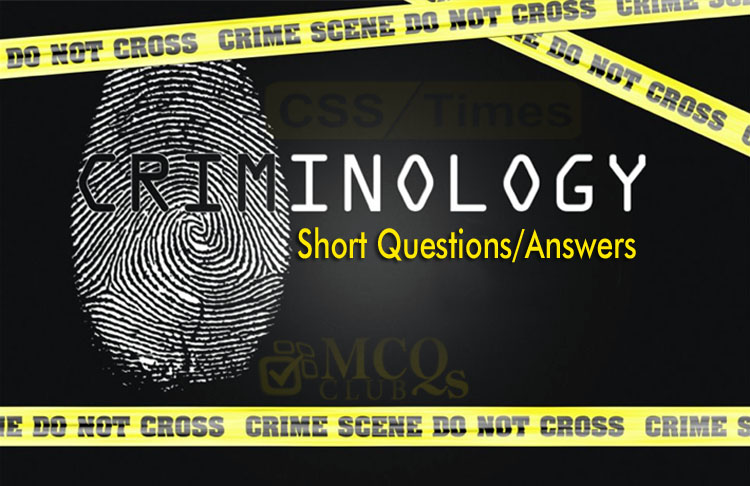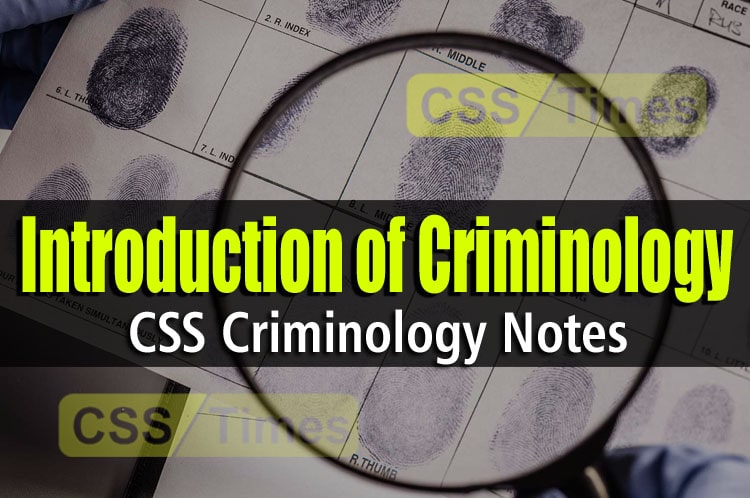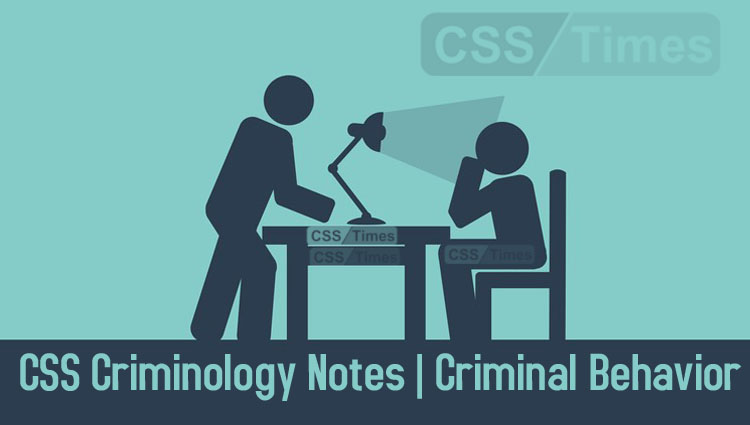Criminology Short Questions/Answers
Schools Of Thought throughout History MCQs
Who is referred to as the founder of the Classical School of criminology?
• Beccaria
Who was the founder of the Positivist School?
• Lombroso
At a very young age he authored his most famous work titled, On Crimes and Punishments?
• Cesare Beccaria
On Crimes and Punishments was published in
• 1764
In criminology, the Classical School usually refers to the 18th-century work during the Enlightenment by the utilitarian and social-contract philosophers:
• Jeremy Bentham and Cesare Beccaria




